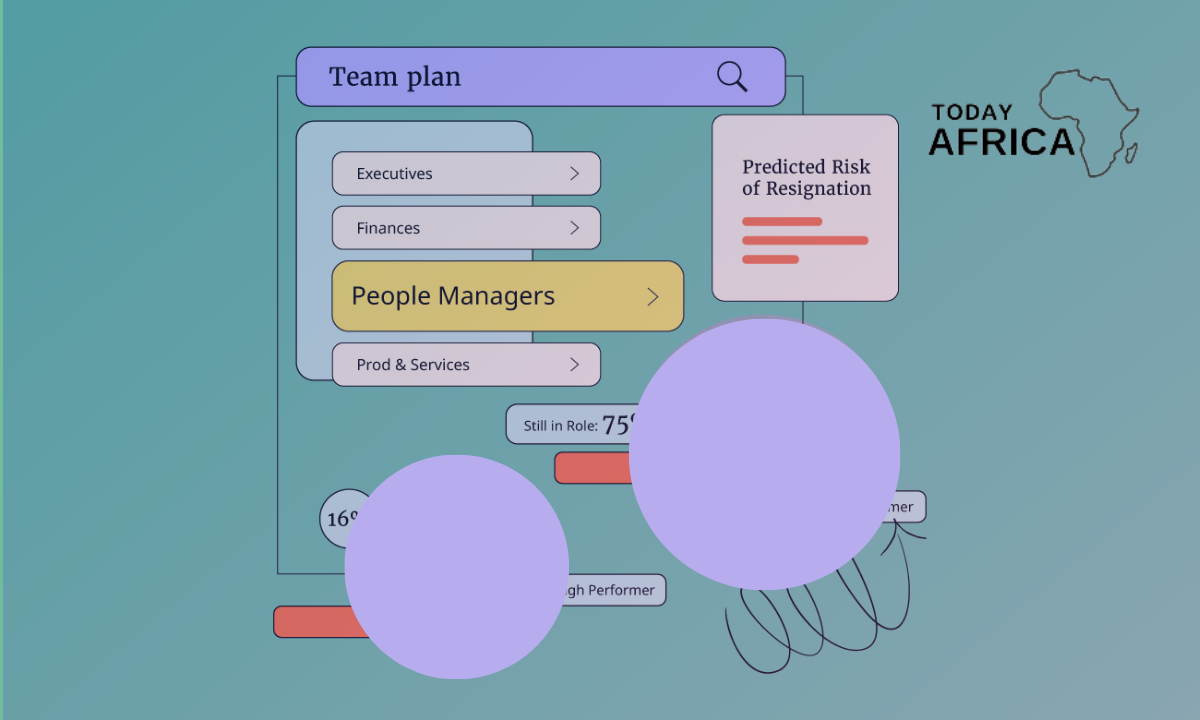In business, cash flow is the lifeblood that keeps the business running. Unlike established companies with stable income streams, startups often face uncertainty in revenue generation.
One way to overcome this hurdle is by building a portfolio of guaranteed or secured revenue—a set of reliable, predictable income sources that can help stabilize operations, attract investors, and guide long-term growth.
In this post, we’ll discuss what is guaranteed or secured for a startup, why they are critical for success, and how you can achieve them.
What is Revenue in a Startup Context
For any startup, revenue is more than just numbers on a spreadsheet—it’s the signal of product-market fit, customer loyalty, and operational stability. However, not all revenue is created equal.
- Projected revenue vs. actual revenue: While projections are useful for forecasting, they are inherently uncertain. In contrast, guaranteed revenue represents money that is contractually or predictably coming in.
- The concept of predictable income: Guaranteed revenue is that subset of income which a startup can count on—often backed by contracts, pre-orders, or recurring subscription fees. It provides a safety net, reducing risk and increasing financial planning accuracy.
- Why it matters: Investors and lenders often look for revenue predictability. Startups with secured income streams are seen as lower-risk investments, which can lead to better funding opportunities and a more stable growth path.
What is Guaranteed Revenue?

Guaranteed revenue refers to income that a startup can reliably count on over a given period. This revenue is “guaranteed” because it comes from sources that involve contractual commitments, recurring payments, or other mechanisms that ensure payment, regardless of market fluctuations.
Key characteristics
- Predictability: Unlike sporadic or one-off sales, guaranteed revenue is steady and dependable.
- Non-dilutive: It typically does not require giving up equity, as is the case with venture capital.
- Risk mitigation: It helps cushion cash flow against market volatility and seasonal dips.
Examples of guaranteed revenue
- Pre-orders and pre-sales: By offering your product for sale before it officially launches, you can secure upfront payments that validate market demand and provide working capital.
- Subscription fees: Monthly or annual subscriptions—commonly used in SaaS and content platforms—ensure recurring revenue. Customers agree to a recurring charge, giving you a forecastable income stream.
- Long-term service contracts: Service-based businesses, such as digital marketing agencies or consulting firms, can secure multi-month or annual contracts that lock in revenue.
- Licensing agreements: Licensing your technology or intellectual property to another firm can provide regular royalty payments.
- Government grants and subsidies: Certain startups, especially those in technology or green energy, may be eligible for government funding that offers predictable cash inflows.
What is secured revenue?
Secured revenue is a term that often overlaps with guaranteed revenue but places additional emphasis on the legal and contractual safeguards that ensure payment. It is revenue that is “secured” by a binding agreement, legal assurance, or collateral arrangement.
How secured revenue differs
- Legal protection: Secured revenue typically comes with legally enforceable contracts that include penalties for non-payment.
- Collateral and guarantees: In some cases, secured revenue streams are backed by collateral (such as letters of credit or guarantees) that provide additional security to the lender or investor.
Examples of secured revenue
- Advance payment contracts: Clients might pay a deposit or even the full fee upfront for services or product delivery. This ensures the startup has immediate cash available.
- Guaranteed revenue agreements: Some B2B contracts include clauses that guarantee a minimum revenue level for the startup over a fixed term, even if actual usage or sales fall below expectations.
- Partnership deals: Strategic alliances with larger companies can sometimes involve minimum revenue commitments, where the partner guarantees a set amount of purchases or service fees.
Importance of Guaranteed and Secured Revenue for Startups
For a startup, achieving a level of financial predictability is not just about day-to-day survival—it also sets the foundation for long-term success. Here are some of the key reasons why guaranteed or secured revenue is essential:
1. Cash flow stability
- Operational planning: With predictable revenue, startups can plan budgets, manage expenses, and avoid cash shortages.
- Reduced stress: Stable cash flow allows founders to focus on growth rather than constantly chasing the next sale.
2. Investor confidence
- Attractive to lenders: Predictable revenue streams are a strong indicator of business health. Investors and banks are more likely to provide additional capital to a startup with guaranteed income.
- Valuation boost: Consistent revenue can lead to higher valuations because it demonstrates the company’s ability to sustain growth.
3. Strategic growth
- Scaling safely: When you know that a base level of revenue is secured, you can take calculated risks to expand your market or develop new products.
- Flexibility in decision-making: Guaranteed revenue provides the financial cushion needed to invest in innovation, marketing, or hiring without jeopardizing core operations.
4. Reduced financial risk
- Mitigating revenue volatility: Relying on unpredictable sales cycles can expose a startup to risk. Guaranteed revenue acts as a buffer during slow periods.
- Easier access to additional funding: Lenders often require a proven revenue stream before extending further credit. Secured revenue can unlock more financing options, such as revenue-based loans.
Sources of Guaranteed Revenue for Startups
Building a predictable revenue stream often involves tapping into multiple sources. Here’s a detailed look at some effective ways to secure guaranteed revenue:

1. Pre-orders and pre-sales
- Early customer engagement: Launching a pre-sale campaign can help gauge customer interest and secure funds before full production.
- Market validation: Pre-orders not only provide immediate cash but also validate your product in the market.
2. Subscription models and recurring revenue
- Software-as-a-service (SaaS): SaaS companies thrive on monthly recurring revenue (MRR) by charging users on a subscription basis.
- Membership sites: Content creators and communities often use memberships to ensure steady income.
- Subscription boxes: For product-based startups, subscription boxes guarantee recurring revenue while also building brand loyalty.
3. Licensing agreements and partnerships
- Intellectual property licensing: If your startup owns innovative technology or a unique product, licensing it to other companies can result in regular royalty payments.
- Strategic alliances: Partnering with established firms to sell or co-brand products can secure long-term contracts and revenue guarantees.
4. Advance payments and long-term contracts
- Service agreements: Offering services on retainer or with long-term contracts ensures that customers are committed to a set payment schedule.
- Project-based work: For consulting or custom development firms, securing projects with upfront deposits can provide a guaranteed revenue stream.
5. Government grants and subsidies
- Non-dilutive funding: Many startups, particularly in technology or social impact sectors, can secure government grants that do not require repayment or equity dilution.
- Innovation programs: Grants aimed at promoting innovation can provide predictable funding over a set period.
Read Also: How to Value a Pre Revenue Startup
Strategies to Secure Guaranteed Revenue
Creating guaranteed revenue isn’t a one-off task—it requires a proactive approach. Here are some strategies to help you secure and maximize your revenue streams:
1. Validate market demand
Conduct customer research through surveys, focus groups, and beta tests to ensure that your product or service meets a real need. Then develop an MVP to test the waters before investing heavily in production.
2. Develop a robust sales strategy
Early adopters can provide critical feedback and help establish initial revenue streams. Offer discounts or incentives for customers who commit to long-term contracts or subscriptions.
3. Negotiate long-term contracts
Negotiate contracts that include minimum revenue guarantees or early payment terms. Ensure that the contracts allow for adjustments based on growth, so you’re not locked into unfavorable terms if your revenue increases.
4. Diversify your revenue streams
Relying on a single revenue source can be risky. Diversify by combining subscriptions, licensing, and one-off sales. Develop complementary products or services that encourage customers to spend more over time.
5. Leverage technology and data
Use data analytics to forecast revenue trends and identify potential shortfalls early. Implement a CRM system to manage customer interactions and improve retention rates.
6. Focus on customer retention
Happy customers are more likely to renew contracts and refer others. So develop loyalty programs that reward long-term commitment.
Benefits and Challenges of Guaranteed Revenue
While securing guaranteed or secured revenue brings numerous benefits, there are also challenges to consider.
Benefits:
- Predictable cash flow: Helps in planning and managing operational expenses.
- Enhanced investor appeal: A stable revenue base can significantly improve your startup’s valuation and attractiveness to potential investors.
- Flexibility: With a steady cash flow, you can invest in new projects, hire talent, and explore growth opportunities with less risk.
- Financial stability: Reduces the risk of running out of cash during slow periods, which is crucial for startups.
Challenges:
- Dependence on key customers: Relying heavily on a few guaranteed revenue sources can be risky if those customers change their buying behavior.
- Operational strain: Meeting contractual obligations may require scaling operations quickly, which can put a strain on resources.
- Upfront costs: Securing long-term contracts or pre-orders may require investments in marketing and customer acquisition.
- Market dynamics: Even guaranteed revenue streams are subject to market fluctuations, especially in competitive industries.
Measuring and Forecasting Guaranteed Revenue
Having secured these revenue streams, it’s crucial to monitor, measure, and forecast them accurately to ensure continued financial health.

Key metrics
- Monthly recurring revenue (MRR): The sum of all subscription-based revenue on a monthly basis. This is especially important for SaaS and service-based businesses.
- Annual recurring revenue (ARR): The annual equivalent of MRR, providing a long-term perspective on revenue stability.
- Customer retention rate: Measures how well you are keeping your customers over time. High retention rates contribute to predictable revenue.
- Contract renewal rates: The percentage of contracts that are renewed at the end of their term. This metric indicates how “secured” your revenue truly is.
Forecasting tools and techniques
- Revenue projections: Use historical data and market trends to predict future revenue. Tools such as Excel, financial planning software, and CRM analytics can help.
- Scenario analysis: Consider best-case, worst-case, and most likely scenarios to understand the potential range of revenue outcomes.
- Customer lifetime value (CLTV): Estimate the total revenue expected from a customer over the entire duration of their relationship with your business.
- Churn rate analysis: Regularly monitor and analyze churn rates to adjust your revenue forecasts accordingly.
Using data to secure future funding
- Investor presentations: Accurate, data-driven revenue forecasts can make your business more attractive to investors.
- Cash flow planning: Use revenue metrics to create a detailed cash flow forecast, helping you plan for periods of low revenue or unexpected expenses.
Read Also: Customer Acquisition Strategy for Startups This Year
Conclusion
Whether you’re a founder striving to secure early revenue or an investor looking for startups with robust, predictable income streams, understanding the difference between projected and guaranteed revenue is crucial. By focusing on guaranteed or secured revenue, you not only improve your startup’s immediate cash flow but also lay the groundwork for sustainable, long-term success.
If you’re ready to evaluate your startup’s revenue strategy, start by asking yourself: Do you have contracts in place that guarantee future income? Are you leveraging recurring revenue models effectively? Are you prepared to diversify your revenue streams to reduce risk?
By addressing these questions, you can ensure that your startup is not only surviving but thriving—even in uncertain times.
For more insights on startup strategies and funding, subscribe to our newsletter:
- Facebook: Today Africa
- Instagram: Today Africa
- Twitter: Today Africa
- LinkedIn: Today Africa
- YouTube: Today Africa Studio
















